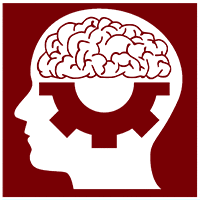
Instructor: Samuel Gershman
Course Number: PSY 1401
Course Level: Graduate, Undergraduate
Syllabus: ![]() CCN2016_syllabus.pdf
CCN2016_syllabus.pdf
Prerequisites: Students should be comfortable with a numerical programming language (e.g. Python, Matlab, R) , and have taken (Harvard) Science of Living Systems 20 (or equivalent) or MCB 80 before enrolling in this course, or obtain permission from the instructor.
Course Website: Accessible with Harvard login
Course Description:
"What I cannot create, I do not understand." – Richard Feynman
This course applies Richard Feynman's dictum to the brain, by teaching students how to simulate brain function with computer programs. Special emphasis is placed on how neurobiological mechanisms give rise to cognitive processes like learning, memory, decision-making, and object perception. Students learn how to understand experimental data through the lens of computational models, and ultimately how to build their own models.
Course Projects:
Students work in groups of 3-4 on four mini-projects during the semester, that each take about two weeks to complete. These projects involve implementing a computational model, simulating empirical phenomena, and giving a class presentation that describes the theoretical and empirical background for the project, summarizes the simulation results, and poses questions for discussion. Each handout below provides references and initial questions for a single project.
- Project 1 - Group 1
- Project 1 - Group 2
- Project 1 - Group 3
- Project 1 - Group 4
- Project 1 - Group 5
- Project 1 - Group 6
- Project 2 - Group 1
- Project 2 - Group 2
- Project 2 - Group 3
- Project 2 - Group 4
- Project 2 - Group 5
- Project 2 - Group 6
- Project 3 - Group 1
- Project 3 - Group 2
- Project 3 - Group 3
- Project 3 - Group 4
- Project 3 - Group 5
- Project 3 - Group 6
- Project 4 - Group 1
- Project 4 - Group 2
- Project 4 - Group 3
- Project 4 - Group 4
- Project 4 - Group 5
- Project 4 - Group 6

